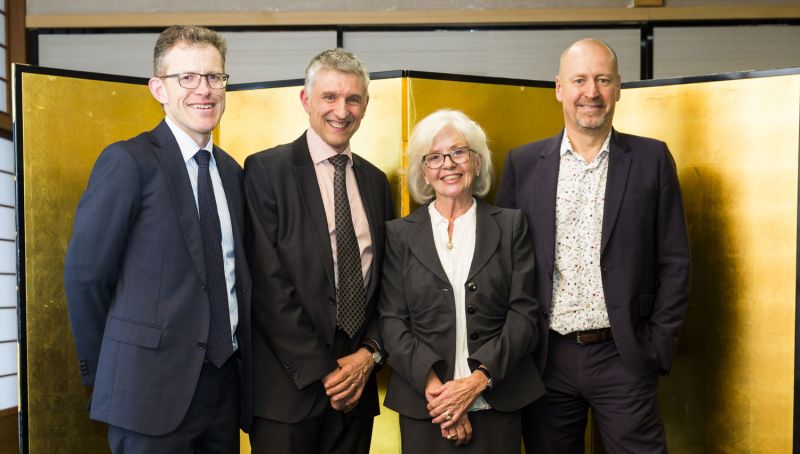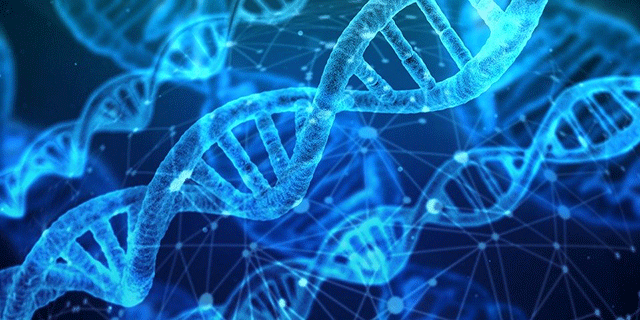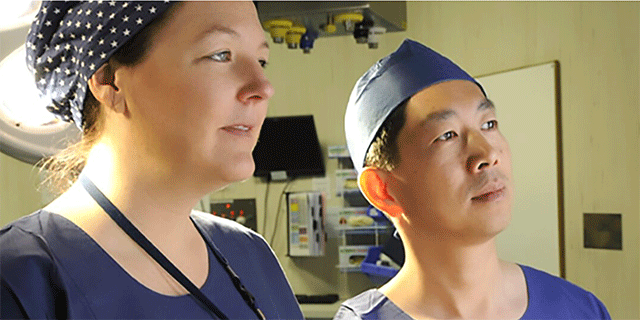THE LORENZO AND PAMELA GALLI MEDICAL RESEARCH TRUST
In 2017, Mrs Pamela Galli AO made a significant gift to the Faculty of Medicine, Dentistry and Health Sciences to establish The Lorenzo and Pamela Galli Medical Research Trust.
The Trust supports collaborative research programs across the Parkville medical precinct in the areas of cancer and developmental disorders and enables a unique partnership between the University of Melbourne, the Peter MacCallum Cancer Centre, the WEHI, the Royal Children's Hospital and the Murdoch Children's Research Institute.
Mrs Galli’s extraordinary philanthropic support of medical research was inspired by her late husband Lorenzo and the specialist care he received during his treatment for skin cancer and a blood related cancer.
This extraordinary gift follows the success of three professorial chairs Mrs Galli established at the University of Melbourne since 2012 to lead the research programs supported by the Trust:
- Professor David Amor, The Lorenzo and Pamela Galli Chair in Developmental Medicine
- Professor Doug Hilton AO, The Lorenzo and Pamela Galli Chair in Medical Biology
- Professor Grant McArthur, The Lorenzo Galli Chair in Melanoma and Skin Cancers
In April 2024, Professor Ken Smith was announced as the new Chair in Medical Biology, upon his appointment as Director of WEHI.

Mrs Pamela Galli with the three inaugural Galli Chairs: (L to R) Professor Amor, Professor McArthur and Professor Hilton AO.
Research programs supported by the Trust
Under the leadership of the three Galli Chairs, Professor Grant McArthur, Professor David Amor and Professor Doug Hilton AO, researchers from the University of Melbourne, the Peter MacCallum Cancer Centre, the Walter and Eliza Hall Institute of Medical Research and the Royal Children’s Hospital are collaborating on three key projects that will impact developmental disorders and cancer.
-
Improving outcomes and quality of life for children with neurodevelopmental disabilities
Aim: To generate new evidence about the causes of neurodevelopmental disabilities and determine whether new and existing therapies are effective in improving outcomes and quality of life for these children and their families.
Collaborators: The Royal Children’s Hospital and the University of Melbourne -
Discovery of new treatments for brain development disorders
Aim: To improve the quality of life for children and their families through the identification of new treatments for patients with a wider spectrum of genetic causes of brain developmental disorders.
Collaborators: The Royal Children’s Hospital, the Walter and Eliza Hall Institute of Medical Research and the University of Melbourne -
Next generation cancer discoveries initiative
Aim: To use state-of-the-art genomics and computational research methods to understand how cancer cells evolve, adapt and influence response to therapy at the single cell level.
Collaborators: The Peter MacCallum Cancer Centre, the Walter and Eliza Hall Institute of Medical Research and the University of Melbourne.
In partnership with


Discovery of new treatments for brain development disorders
We anticipate that through this program of research, more children with intellectual disability will receive targeted treatment to enhance their brain development. By building capacity in registries, data science, clinical trials and implementation science, we will be in a position to generate new evidence about the cause, prevention and best treatment for neurodevelopment disability.

Improving outcomes and quality of life for children with neurodevelopmental disabilities
Intellectual disability occurs in 2-3% of newborn babies and results in a lifetime of dependency. Traditionally, intellectual disability has been viewed as an untreatable condition, but we are now investigating whether there may be ways to prevent or ameliorate such disability through cellular interventions.

Next generation cancer discoveries initiative
Cancers are characterised by a complex mixture of cells including cancer cells that differ from each other plus non-cancer cells such as immune cells. Technology has now emerged to allow single-cell gene sequencing and expression analysis. We apply computational methods to understand the resulting complex data, which is critical to improving response to treatment and defeating cancer growth.
Learn more about the impactful research being supported by the Lorenzo and Pamela Galli Medical Research Trust.
-
Professor Alicia Oshlack
Read about how Alicia is using innovative genome-wide technologies to detect cancer-causing mutations.
-
Maria Bergamasco
Learn about how the Lorenzo and Pamela Galli Medical Research Trust is supporting the work of PhD student Maria Bergamasco.
-
Dr Hannah Vanyai
Read about how Dr Hannah Vanyai is using dietary supplementation to support the health brain development of children with neurodevelopmental disorders.
-
Dr Jordan Wright
Find out how Jordan's research could pave the way towards exciting new treatments for epigenetic-related neurodevelopmental disorders.